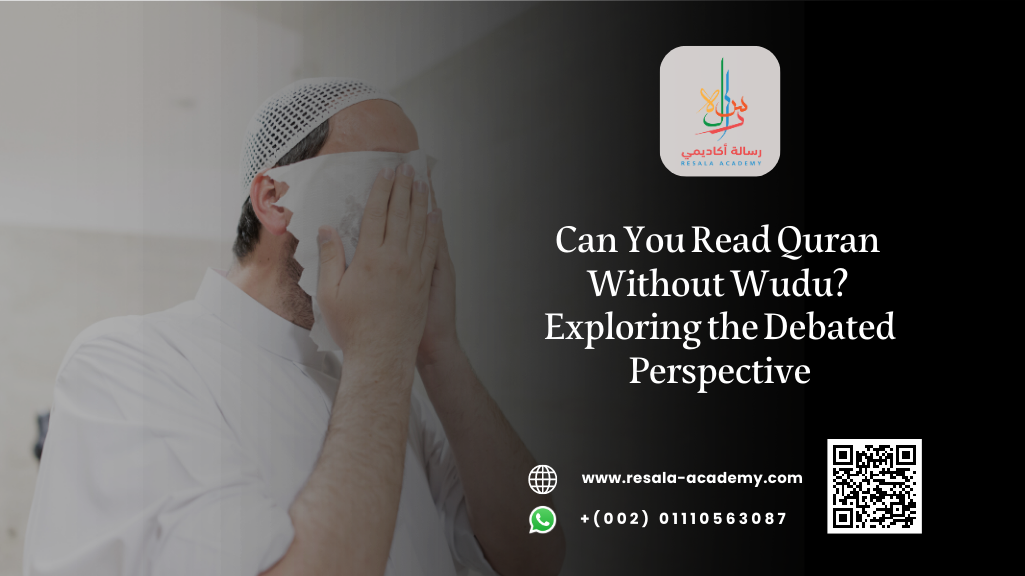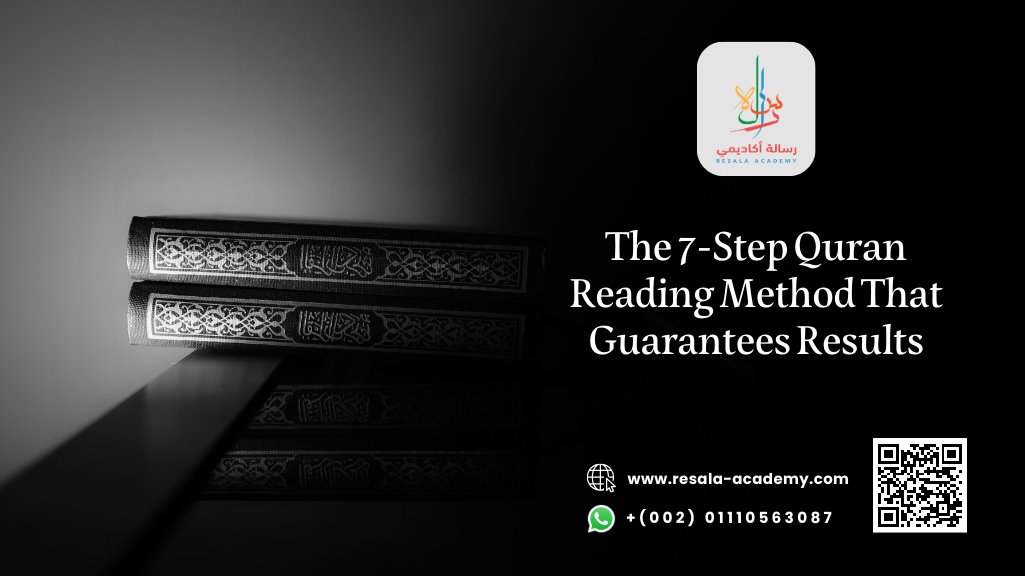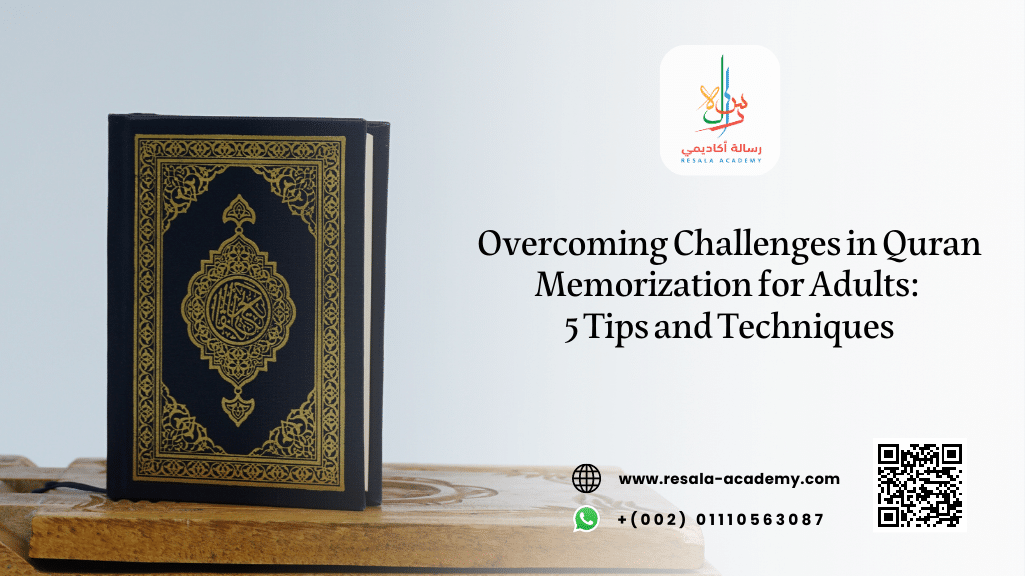Table of Contents
Can You Read Quran Without Wudu? Exploring the Debated Perspective
The Quran is the central religious text of Islam and is held in high esteem by Muslims around the world. Over the centuries, scholars have debated whether or not wudu – a ritual cleansing process – is necessary before reading the Quran. This article: “Can You Read Quran Without Wudu? Exploring the Debated Perspective” will discuss both sides of this debate, as well as the various interpretations of Islamic law that inform it. Additionally, we will explore the implications of this debate on how people approach their daily practices about the Quran. By providing a comprehensive understanding of this issue, our goal is to help readers make an informed decision about which side they agree with and why.
Ultimately, the answer to the question of whether or not wudu is necessary for reading the Quran is complex and requires a nuanced approach. This article will provide an overview of this issue from a variety of perspectives, including Islamic law, theological arguments, and personal opinions. By examining all aspects of this debate in an unbiased manner, we can better understand what Muslim scholars have historically said about it and how modern interpretations continue to evolve.
Criteria for being neat and clean in Islam
In Islam, being neat and clean is highly valued. It is not only a physical state but also a spiritual one that reflects the purity of the heart and mind. Muslims are encouraged to maintain cleanliness in all aspects of their lives, including personal hygiene and the environment around them.
Maintaining cleanliness involves performing regular acts such as bathing (ghusl) and ablution (wudu). These rituals are considered prerequisites for certain religious activities, including prayer and touching the Quran. They serve as a means of purifying oneself before engaging in acts of worship.
Cleanliness extends beyond the physical realm to encompass moral conduct as well. Muslims are urged to exhibit good character traits such as honesty, kindness, and humility. Keeping one’s thoughts pure from negativity or harmful intentions is also emphasized.
Islamic teachings emphasize the importance of maintaining an orderly and clean living space. This includes keeping our homes free from clutter and dirt while practicing proper waste management.
By adhering to these criteria for being neat and clean in Islam, individuals strive to achieve both physical purity and spiritual tranquility in their daily lives. It serves as a foundation for approaching religious practices with reverence while fostering an overall sense of well-being within oneself and society at large.
Purification for reading the Quran
Purification for reading the Quran is an important aspect of Islamic practice. According to Islamic teachings, one must be in a state of ritual purity, known as wudu, before touching or reciting the Quran. Wudu involves washing specific parts of the body in a prescribed manner.
The purpose of this purification is to attain spiritual cleanliness and show respect for the words of Allah. It is believed that being physically clean enhances one’s ability to connect with and understand the message of the Quran.
Performing wudu typically entails rinsing the mouth and nose, washing the face, hands, and arms up to elbows, wiping over the head, and washing feet up to ankles. This process ensures physical purity before engaging with sacred scripture.
By observing these practices of purification for reading the Quran through wudu, Muslims seek not only to honor their faith but also to foster a deeper sense of reverence and connection with Allah’s divine guidance.
Interpreting hadith on the purity of the believers
Interpreting hadith on the purity of the believers can be a topic of debate among scholars. Various hadiths mention the importance of being in a state of purity when engaging with the Quran. One commonly cited hadith states that angels do not come near an impure person, referring to physical impurity such as having passed wind or experiencing menstruation for women.
However, it’s important to note that there are different interpretations and perspectives on this matter. Some scholars argue that these hadiths should be understood metaphorically, emphasizing spiritual cleanliness rather than solely focusing on physical purification.
Others believe that while physical cleanliness is essential, it may not always be possible for everyone to maintain wudu at all times. They argue that intention and respect for the Quran are equally important factors when reading or reciting it.
Interpreting these hadiths requires knowledge and understanding of Islamic jurisprudence, along with considering differing opinions from reputable scholars throughout history. It is an ongoing discussion within Islamic scholarship without a definitive consensus.
Can I Touch The Quran Without Wudu?
In Islam, the Quran is revered as the holy book that contains the word of Allah. It is essential to treat it with utmost respect and purity. One common question that arises is whether or not one can touch the Quran without wudu, a ritual purification process.
According to some scholars, physical contact with the Quran should be avoided unless in a state of wudu. This belief stems from hadiths that emphasize cleanliness and purity when handling the sacred text. However, other scholars argue that touching the Quran without wudu is permissible as long as one’s body and hands are clean.
It’s important to note that opinions on this matter may vary among different schools of thought within Islam. Therefore, individuals should consult their local religious authorities for guidance on this issue. Seeking knowledge about proper etiquette when interacting with the Quran helps ensure reverence and respect towards this sacred scripture.
Can I Read The Quran Without Wudu?
One of the commonly debated topics among Muslims is whether or not one can read the Quran without performing wudu (ablution). According to Islamic teachings, it is important to be in a state of cleanliness and purification before engaging with the holy book. This includes being physically clean, having performed wudu, or taking a ritual bath if necessary.
Performing wudu involves washing specific body parts in a prescribed manner. It is believed that this act purifies both the body and soul, allowing for a deeper connection with Allah while reading His words. However, there are differing interpretations among scholars as to whether wudu is an absolute requirement for simply reading the Quran.
Some scholars argue that as long as one’s physical hygiene is intact and they are free from major impurities such as menstruation or postnatal bleeding, one may read the Quran without performing wudu. Others believe that even minor impurities require ablution before touching or reciting from the holy text.
Personal beliefs and interpretations may vary on this issue. It is recommended to seek guidance from knowledgeable individuals or scholars who can provide insight into your specific situation and help you make an informed decision regarding reading the Quran without wudu.
Do I Need Wudu To Read The Quran On a Phone or Laptop?
Can I Read The Quran Without Wudu? This is a question that often arises when it comes to reading the Quran on devices such as phones or laptops. According to Islamic teachings, wudu is required for physical contact with the Quran in its physical form. However, the debate surrounding whether wudu is necessary when reading the Quran digitally remains ongoing.
Some scholars argue that since digital versions of the Quran do not involve direct physical contact, wudu may not be mandatory. They believe that as long as one maintains a state of cleanliness and avoids ritual impurities, one can read and recite the Quran on electronic devices without performing wudu.
On the other hand, some scholars recommend maintaining a state of ritual purity even when reading from digital copies of the Quran. They argue that this practice reflects respect for Allah’s words and upholds proper etiquette while engaging with His divine message.
There isn’t a definitive answer regarding whether you need wudu to read the Quran on your phone or laptop. It is important to consult with knowledgeable scholars or reputable sources to gain insights into differing opinions and make an informed decision based on personal conviction.
Can You Learn To Read the Quran Online Without Wudu?
In today’s digital age, learning to read the Quran online has become increasingly popular. Many Muslims, especially those living in non-Muslim countries, are turning to online platforms for Quranic education. But a question often arises: Can you learn to read the Quran online without wudu?
Wudu, or ablution, is an essential ritual cleansing that Muslims perform before engaging in acts of worship such as prayer and reciting the Quran. It involves washing specific parts of the body with water. According to Islamic teachings, wudu is not only necessary for physical cleanliness but also serves as a symbolic purification of one’s intention and state of mind.
When it comes to learning how to recite and understand the Quran through online courses or apps, scholars have differing opinions on whether wudu is required. Some argue that since you are not physically touching or holding a physical copy of the Quran during online lessons, wudu may not be obligatory.
However, others assert that even though you are using electronic devices like phones or laptops to access digital copies or audio recordings of the Quran during your virtual lessons, maintaining purity through performing wudu is still recommended out of respect for Allah’s words.
Individuals seeking knowledge about Islam and its holy book need to consult with their trusted scholars or teachers regarding this matter. They will provide guidance based on their interpretation of religious texts and traditions so that learners can navigate these technological advancements while upholding their spiritual obligations.
Can You Recite The Quran Without Wudu When You Have Memorized It?
Reciting the Quran is a sacred act that holds immense importance in Islam. For Muslims, it is not just about reading the words but also understanding and connecting with the message of Allah. But what if you have memorized the Quran? Can you recite it without performing wudu (ablution)?
The scholars have differing opinions on this matter. Some argue that since you have already committed the entire Quran to memory, you are essentially carrying it within yourself at all times. Therefore, they believe that wudu is not required for recitation in this case.
However, other scholars emphasize the significance of maintaining purity and cleanliness when engaging with the words of Allah. They suggest that even though you may have memorized the Quran, performing wudu before recitation shows respect and reverence for its divine content.
Whether or not to perform wudu while reciting from memory depends on your conviction and adherence to scholarly interpretations. It is essential to seek knowledge and guidance from reputable sources to make an informed decision regarding this matter.
Can You Read The Quran In the State of Major Impurity (Junub)?
In Islam, being in a state of major impurity, known as Junub, requires one to perform a ritual bath or ghusl before engaging in acts of worship. This includes reading the Quran. According to Islamic scholars, it is not permissible to touch or recite the Quran while in this state.
The reasons behind this prohibition stem from the belief that purity and cleanliness are essential aspects of approaching Allah and engaging with His words. Therefore, individuals must cleanse themselves through ghusl before they can read or recite the Quran.
Although some may argue that reading from memory without physical contact should be allowed even when in a state of major impurity, there is no clear consensus on this matter among scholars. It is always best to err on the side of caution and ensure one’s purification before interacting with the holy scripture.
Remember, seeking knowledge about these matters from qualified Islamic scholars will provide more accurate guidance regarding reading and reciting the Quran while in a state of major impurity (Junub).
Touching and reciting the Quran without wudu
Touching and reciting the Quran without wudu is a topic that has sparked much debate among scholars. According to some interpretations, it is not permissible to touch or recite the Quran without being in a state of ritual purity. This means that one must perform ablution (wudu) before engaging with the holy book.
However, there are differing opinions on this matter as well. Some scholars argue that touching or reciting the Quran without wudu is allowed as long as one’s body and clothes are clean. They believe that physical cleanliness is sufficient for handling the sacred text.
It’s important to note that these varying perspectives stem from different interpretations of hadiths and scholarly discussions. Individuals should seek guidance from trusted sources and follow what they deem appropriate in their practice of Islam.
Are Quran apps the same as mushafs?
Quran apps have become increasingly popular in the digital age, allowing individuals to conveniently access and read the Quran on their smartphones or tablets. However, it is important to understand that Quran apps are not the same as mushafs, which refer to physical copies of the Quran.
While both Quran apps and mushafs contain the same text of the Quran, there may be differences in presentation and layout. Mushafs typically follow a traditional Arabic calligraphy style with specific formatting rules for verses and chapters. On the other hand, Quran apps may offer various customization options for font size, color themes, and translations.
Using a physical mushaf requires wudu (ritual ablution), whereas this requirement does not apply when using a Quran app. This is because touching a physical copy of the Quran without being in a state of purity is generally considered disrespectful. However, reading from an electronic device does not carry such restrictions.
In conclusion, While both methods provide access to the sacred text of Islam, It’s essential to acknowledge that they differ in terms of format and adherence to ritual requirements like wudu. Regardless of whether one chooses to use a traditional mushaf or opt for a digital alternative, the ultimate goal remains connecting with the divine message contained within its pages.
Can You Read Quran Without Wudu? What is the scholars’ opinion on reading the Quran without wudu?
Scholars have differing opinions when it comes to reading the Quran without wudu, but most agree that it is preferable to be in a state of ritual purity. Wudu, or ablution, is an important part of Islamic practice, as it cleanses both the body and soul before engaging in acts of worship. It is believed that being physically clean helps one approach the words of Allah with reverence and respect.
However, some scholars argue that while wudu is highly recommended for reciting or touching a physical copy of the Quran (mushaf), it may not be strictly necessary when reading from electronic devices like phones or laptops. They believe that since these devices are not considered actual mushafs, they do not require the same level of cleanliness.
Whether or not you need wudu to read the Quran depends on your personal beliefs and interpretations. It’s always best to consult knowledgeable scholars who can provide guidance based on religious texts and traditions.
Resala Academy Offers Online Quran Courses
Resala Academy is a renowned institute that offers online Quran courses for individuals seeking to enhance their understanding of the holy book. With its team of qualified and experienced instructors, Resala Academy ensures that students receive comprehensive and authentic teachings of the Quran from the comfort of their own homes.
The online Quran courses provided by Resala Academy cover a wide range of topics, including Tajweed (the correct pronunciation and recitation), Tafsir (interpretation), and Hifz (memorization) of the Quran. The courses are designed to cater to learners at different levels, from beginners to advanced students. Whether you are new to studying the Quran or looking to deepen your knowledge, Resala Academy has a course tailored to meet your needs.
By enrolling in Resala Academy’s online Quran courses, students have the flexibility to learn at their own pace and schedule. The academy provides interactive live classes where students can engage with instructors in real time, ask questions, and clarify concepts. Additionally, recorded lessons are available for those who may miss a class or prefer self-paced learning. With its user-friendly interface and dedicated support team, Resala Academy ensures a seamless learning experience for all its students.
FAQs
1. Can You Read Quran Without Wudu?
One common question that often arises is whether it is permissible to read the Quran without performing wudu (ablution). The answer to this question may vary depending on different interpretations and opinions within the Islamic community.
2. What is the Scholars’ Opinion on Reading the Quran Without Wudu?
Scholars have differing views regarding reading the Quran without wudu. Some argue that wudu is a necessary prerequisite for touching or reciting the Quran, as it symbolizes purification and respect for Allah’s words. Others take a more lenient stance, stating that while wudu is preferred, it may not be an absolute requirement for reading or reciting from memory.
3. Are There any Exceptions?
It’s important to note that there are exceptions to consider in certain circumstances, such as when one cannot physically perform ablution due to illness or lack of access to water. In these cases, individuals can consult with knowledgeable scholars who can provide guidance based on specific situations.
Conclusion
The question of whether one can read the Quran without wudu has been a topic of debate among scholars. While there are differing opinions on this matter, it is important to understand the criteria for being neat and clean in Islam. Purification through wudu is considered essential before engaging with the holy book.
The hadiths that emphasize the purity of believers further support the idea that wudu should be performed before reading or touching the Quran. However, some scholars argue that physical impurity does not necessarily affect one’s ability to recite or understand its message.
When it comes to reading the Quran on electronic devices such as phones or laptops, opinions vary. Some scholars believe that wudu must still be performed while others consider it permissible without ablution due to differences in physical touch.
Similarly, learning to read and recite the Quran online raises questions about whether wudu is necessary during these virtual sessions. Scholars have different perspectives on this matter as well, with some stating that intention and respect for Allah’s word are more important than physical cleanliness.
For those who have memorized the entire Quran and wish to recite it from memory while in a state of major impurity (junub), opinions differ. Some scholars permit it while others recommend performing ghusl before engaging in any religious activities.
Regarding touching and reciting from mushafs (physical copies of the Quran), most scholars agree that having wudu is mandatory due to direct contact with Allah’s words written on paper.
It is crucial to note that using digital applications or apps for reading or listening to verses from a translated version may not carry identical sanctity as handling a physical copy of al-Quran itself but still requires a level of reverence and etiquette.
Seeking knowledge from reputable sources such as Resala Academy can help guide these matters based on Islamic teachings and scholarly consensus. They offer online courses where individuals can learn how to read and understand the Quran with proper understanding and respect for its sanctity.




